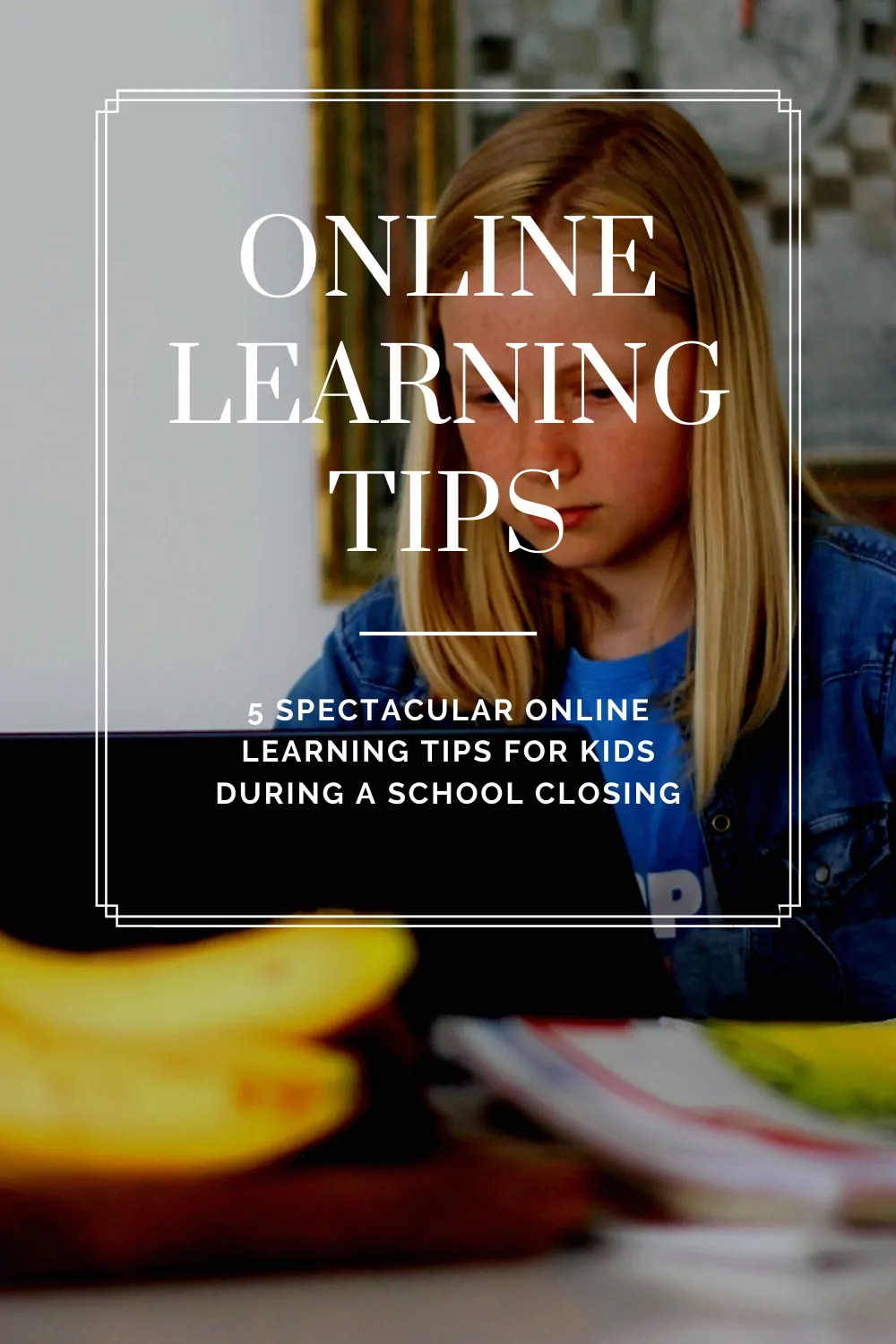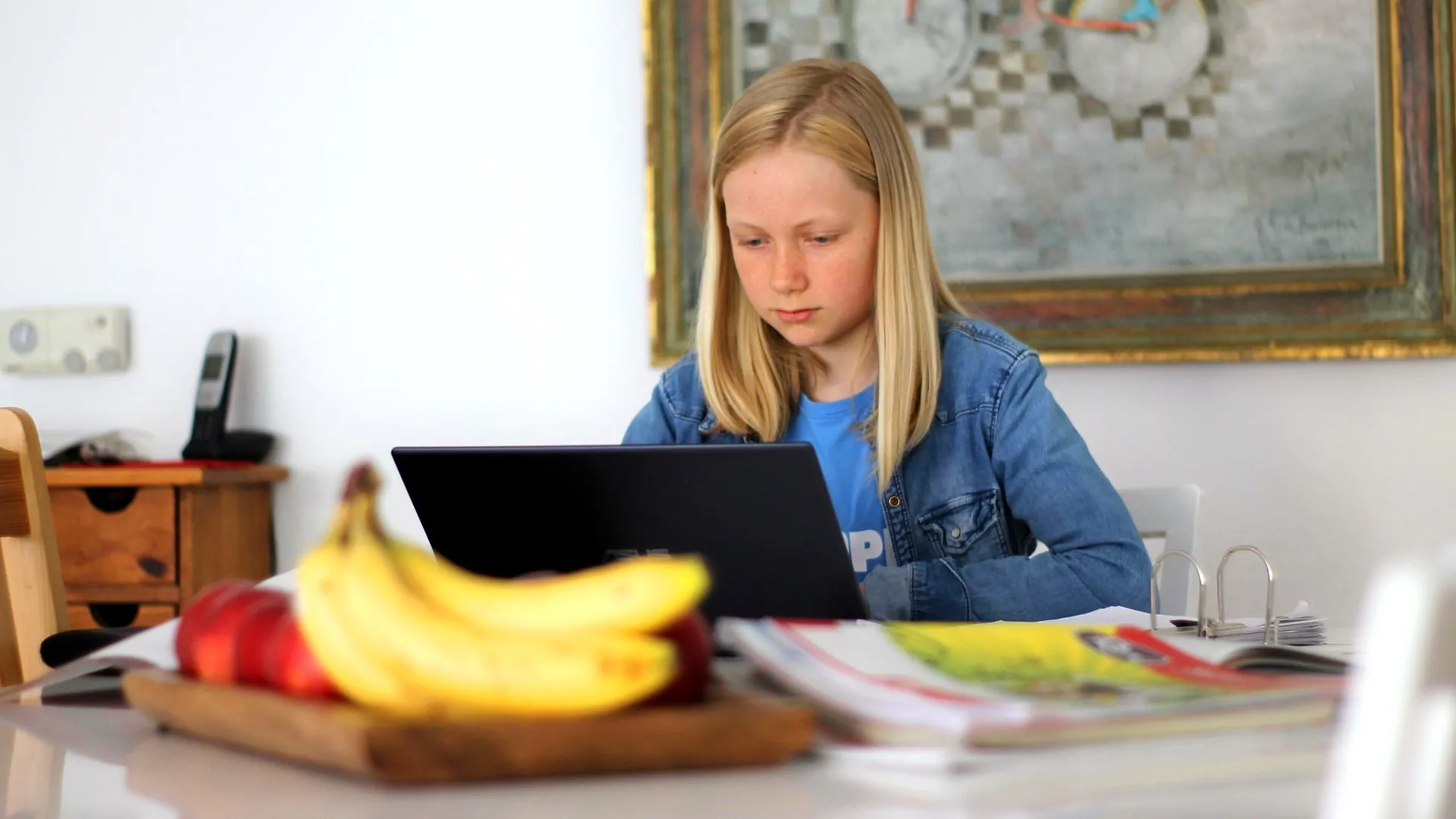Are you trying to manage online learning? It can be intimidating and stressful for any parent. And if you are trying to work from home with kids around, it can add a whole other factor.
There are a few simple things you can do that will help ensure success. Like most parenting, it’s all about forethought and making a plan.
Whether you are trying home school in general or you are on a temporary quarantine, it is best to use the weekend (or a late night without distractions) to get organized.
So, let’s get into this with our five online learning tips that will help you not only survive but thrive during online learning.
1) Set Up a Daily Routine
First, you will need to establish a daily routine and pursue online learning classes along with other activities during the school closure period. A routine helps your kids feel motivated, purposeful, and on track.
Try to get them on the same schedule they had before the school closure. Don’t be afraid to ask the school for their usual flow of the day.
Also, don’t forget to plan a time for recreation and physical activity, such as playing in the backyard when they complete their schoolwork and online classes. Just like with adults, physical activity and hobbies (like art) help relieve stress and in turn will help the mental and physical health of your child.
2) Choose a Quiet Place for Online Learning
Create the right atmosphere for online learning to help your child adopt this new way of learning. Set up a clutter-free and comfortable space for your child in your home dedicated to their learning. The chances of distraction will be lower, so they can focus better on their work.
Check that your network connectivity and lightning are good in the learning space. This ensures that your kids will have a positive experience while taking classes virtually.
If you don’t have an office space you can convert your lounge table or dining table into the learning station. Remove all the kitchen items from the table when the kids are doing their work. When its lunch or dinner time, put away all the supplies and use it again as a dining table.
This helps children to mentally compartmentalize learning time from home life.
Also, you mustn’t turn on the TV during learning time. It’s just too tempting.
Pro-tip: If you can’t live without your shows as you do tasks during the day use bluetooth headphones and connect to your phone.
3) Monitor the “Monitor” During Online Learning
Kids are not used to online learning. So, it is expected that they get bored and lose interest.
Monitor your kids to gage their engagement or level of interest.
But how do you do that? This is very simple, with observation.
- Look at your kid’s eyes and see if he is following along with the computer screen or not.
- Check if he is taking notes or not.
- Ask some questions at the end of each session.
This may take time from house chores or work time, but it is important to know that your kids are indeed learning. Schedule this check in breaks within your own daily routine.
If you find that your child’s interest level is not satisfying or is not engaged with the online learningsessions, contact your child’s teacher or the school district to help resolve the issue.
4) Brain Breaks for Online Learning
Kids can work with more focus when they do exercise before learning or routine “brain breaks” during work. Repeated physical activity can improve the attention of kids during school, so online learning is no exception. Like previously stated, it is a great way to reduce anxiety or stress.
If you are looking for something that is a fun break without them leaving their work station I recommend these online no download art apps.
5) Look for Ways to Remove Learning Barriers
If your child is taking online learning classes, but he has learning challenges, then you should review the learning and online material that the school or teacher sends you. Be in close contact with the teacher to address these issues and ask for ways to remove learning barriers.
If your child has an IEP or 504 then it is reasonable to ask for a meeting to see how these will be adjusted for the unique demands of online learning.
Some students may be eligible for in home visits by occupational therapists. Learning exceptionalities can vary greatly, so it is important to ask question about your child’s particular needs.
As a parent, you are their advocate. If you don’t fight for them who will?
Final Thought on Online Learning Tips
The most important thing for any parent or guardian to remember while navigating online learning during these uncertain times is patience and forgiveness. I’m not just talking about having patience with your children. You need to have patience and forgiveness for yourself.
Most parents have no experience in the education field. There is a learning curve, and you will make mistakes. That’s okay. It’s how we move forward that matters.
Don’t give up. If you are putting forward your best effort that is what matters. Be willing to take advice from the coordinating teacher.
Try your best to stay calm in the moment. If you need to walk away, take a break, and come back with a better frame of mind.
Evaluate what your issues are and see if the above tips will solve them. Take the time alone to make your action plan and come back with renewed intentions the next day.
You’ve got this!






